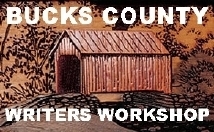

WHAT'S 'GOOD' WRITING? by Alan Shils
This is like the question, "What is paradise?" Someone answered: "I don't know what paradise is but I can define hell: Hell is paradise without an exit door."
1 -- Just because some words can be strung together to form a grammatically correct (or even, in some cases, a grammatically incorrect, sentence) does not mean the word-mass has to make any sense. Generally, avoid such strings of words.
2 -- In engineering there is the measure called S/N, signal to noise ratio. Simply stated, 'signal' is what you want and 'noise' is what you don't want and every communication channel will have some noise. (Do you remember 'snow' on early TV sets? That 'snow' was noise.) If the noise is low and/or the signal is high, both being relative, the intelligence desired to be communicated will go through the channel. Same for writing: The less noise and/or cleaner the wording, the better to convey what the author means.
3 -- Over decorating, or, excess noise. The use of excessive words only clogs the channel. Example: "He went over to the door." Here, 'over' is a piece of junk noise that gets in the way of the message. It may sound simple but it is so common it can terribly trash a manuscript. But watch the context. Who is speaking will influence the noise level.
4 -- Timing. Writing is often been compared with 'painting a picture with words'. If anything, I've found writing to be more like music which is highly dependent on timing. The mood of a written piece can have a slow or fast rhythm which can be conveyed by size of words, length of phrase, etc. (Like selecting 1/16th vs. whole notes, etc.). Imagine the "Flight of the Bumble Bee" written in whole notes or the "Blue Danube" in 1/32 notes. Timing is critical and needs to be carefully selected at various places in a piece. Messing with or not paying correct attention to 'timing' loads the piece with noise and decreases the signal.
5 -- If you want to screw up writing, write poetry. In poetry, you can get away with anything.
6 -- Rules. There are none. Writing is an art, not a science. If you want rules, play baseball.
7 -- Criticism: Nobody wants to hear their baby is ugly. And, don't tell an author their writing is pretty; they know that. And, forget the subject matter. Criticizing the subject is absurd because that attacks freedom. The only thing left is analyzing technique and choice of mechanism to get the subject flowing along the channel with maximum signal and minimum noise. The monkey wrench in the works is that different people have different personal takes on a message and different tolerances for and interpretations of noise. What is garbage to one may be desirable to another reader. It all boils down to: You can't satisfy everyone so don't even try to. Decide what percent of your audience you want to glean a positive reaction from and forget about the rest.
8 -- Generally, I am against unnecessary detail. Bodily descriptions, clothing details, weather dynamics, the street a character lives, walks, drives on, or is being dragged through and a zillion other details are virtually annoying unless they have a definitive part in the plot. If someone wore a sweater because it is cold is almost as boring as the color of the sweater unless the color is what a killer was told to look for and there is a mix-up in the murder victim, poor soul.
9 -- Lastly, I fallback on Duke Ellington's definition of good music: "If it sounds good, it is good." That also holds for photography and writing. In photography I've said, 'If it looks good, it is good.' In writing, 'If it reads good, it is good.' Why the extra photography subject? Photography is as strangled by rules as is writing, yet, a photograph may be a masterpiece and also technically awful or break many rules. Photography is also an art not a science. [The techniques of making a photograph are heavily dependent on technology.] So too, a 'bad' piece of writing, perhaps almost all noise, in exactly the right place, can be successful. Strange dichotomies always mess things up.
Alan Shils 9/10/07